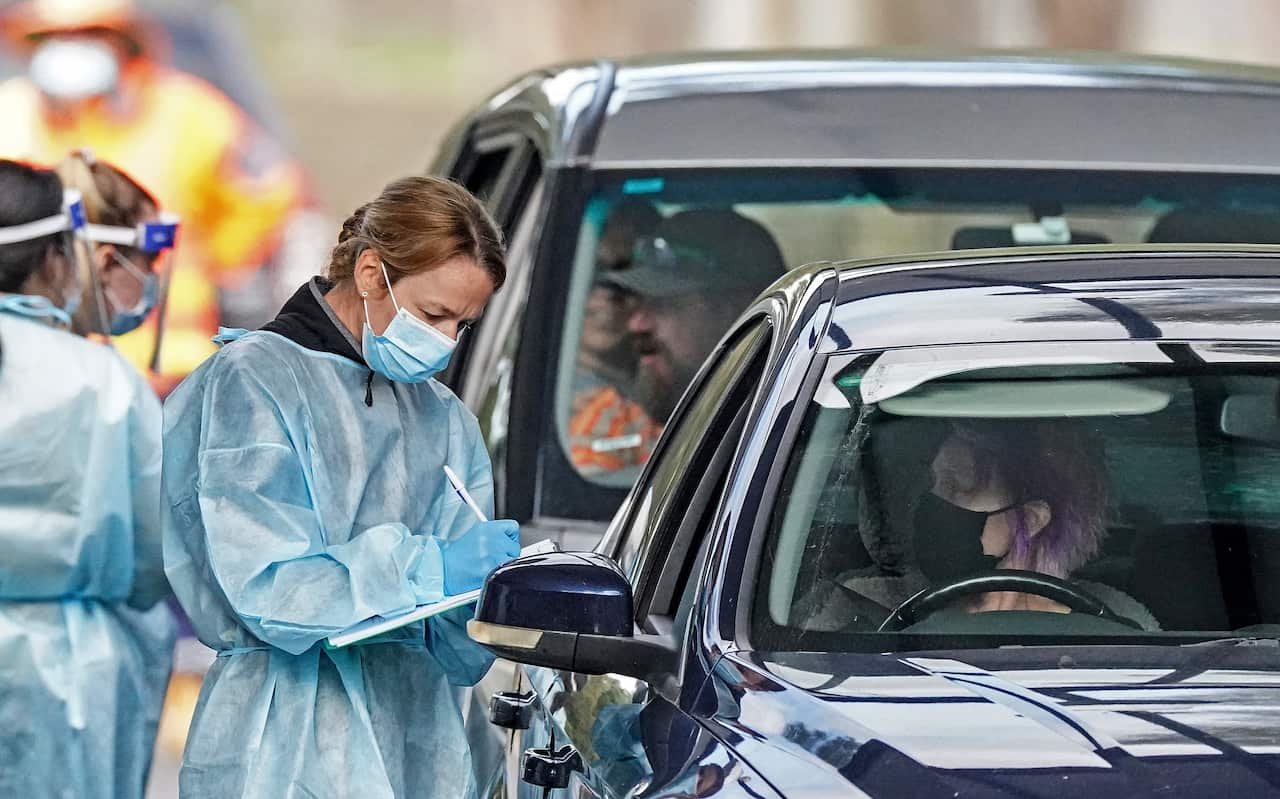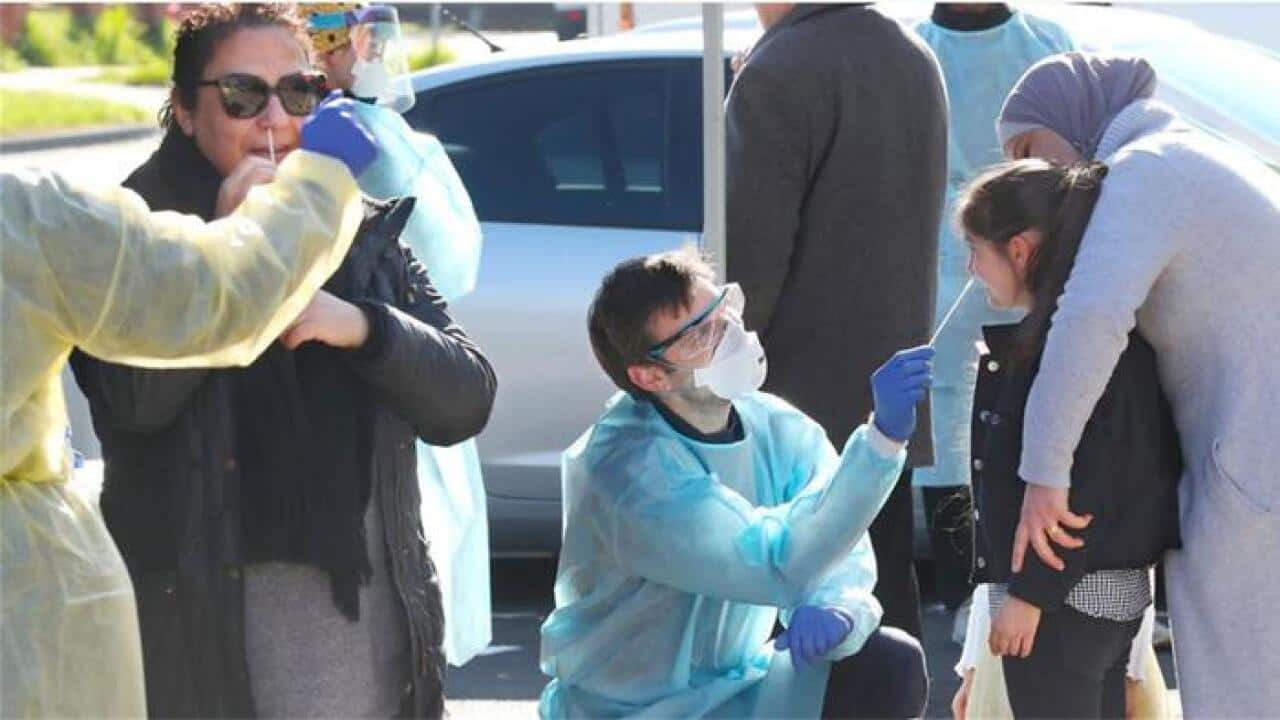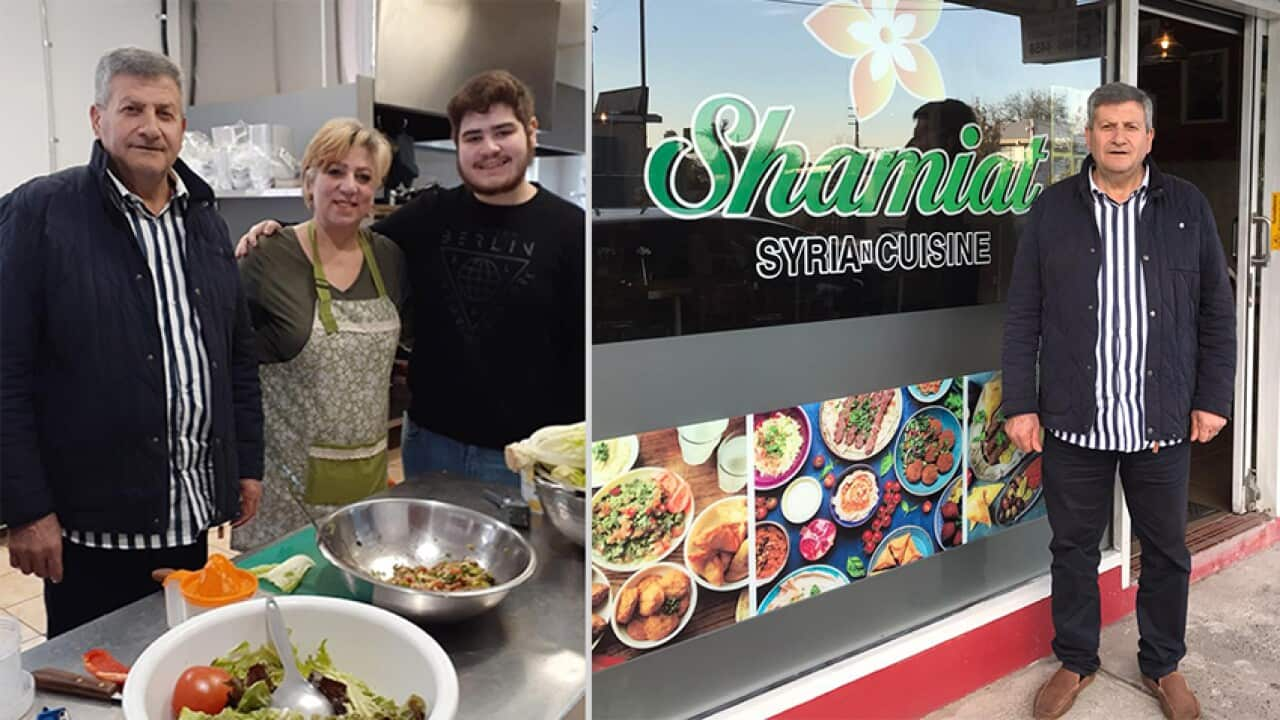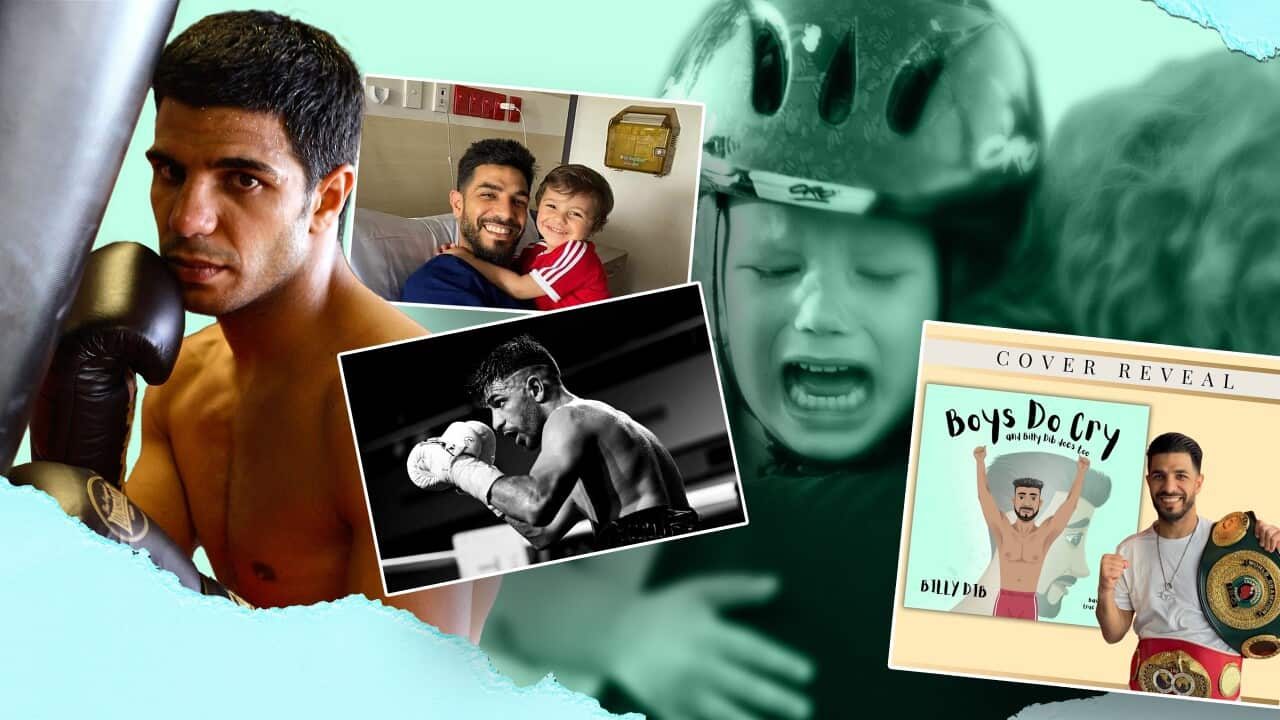More than 300,000 people living in COVID-19 hot spots began a fresh period of lockdown in Melbourne on Thursday, until at least July 29.
The move comes as the Victorian government battles to contain a spike in recorded cases,
Iraqi refugee Bushra Al Dailmi is in lockdown with her sister and three nephews in the hot spot suburb of Craigieburn.
She arrived in Australia in 2012 after surviving several brutal events during the Iraq war between 2003 and 2007. She lived in Baghdad, Iraq’s capital, during the war’s worst phases of sectarian violence.
She lived in Baghdad, Iraq’s capital, during the war’s worst phases of sectarian violence.

Victoria introduces mandatory coronavirus testing for travellers. Source: AAP
While she agrees with the lockdown measures, her current situation has brought back some unpleasant memories.
“I feel isolated, you feel what prisoners feel like, what people stuck in war zones feel like, isolated,” she told SBS Arabic24.
“[In Iraq] we locked ourselves in the house, fearing we will get killed, we were waiting for someone to break into the house at any moment.
“The lockdown now reminds us of the war years. Back then, killing was for sectarian reasons, we would stay in the house for months and ration our food. No leaving and no going out for any reason.”
Ms Al Dailmi’s sister’s husband was killed in 2007 and the family was forced to flee to neighbouring Syria.
“When I went with my sister and her kids to Syria, we got completely isolated from the rest of our family, no contact at all.”
She’s currently studying medical sciences at university and wants to become a dentist. One of her jobs at home is to inform her three nephews about the current situation.
“They are disappointed, especially with the school holidays now, they feel they are not doing the activities they are used to after the end of the term.
“But we explain to them and they are aware there is a virus now and it is dangerous for them and for people surrounding them.”
Lebanese Australian Rachid Gheia celebrated his 25th birthday while in lockdown in the Melbourne suburb of Glenroy.
“This is not how I expected to spend my 25th birthday, locked in the house,” he said.
“But things change day to day, and we don’t know when life will get back to normal, but at the same time, I spent a good day with my family, and we celebrated in a different way.”
He said news of the second lockdown came as a “shock”.
“I was getting used to coming out from the first one, started to see my friends, and then suddenly the situation changed.
“I had a big conversation with my family and friends to see how we will handle this.” Mr Gheia, who is studying a Master’s degree in phycology, had to make changes to his lifestyle during the first lockdown to cope with anxiety and fear.
Mr Gheia, who is studying a Master’s degree in phycology, had to make changes to his lifestyle during the first lockdown to cope with anxiety and fear.

Victoria has increased the number of COVID-19 testing sites across the locked down suburbs. Source: AAP
“I suffered at the beginning with these changes that cause anxiety, and we can’t see our family and friends which has an impact on mental health, but we had to cope with the situation and change our daily routine.
“There is a big fear for one’s health and for others as well.”
Dr Amer Malouka lives in Greenville, a suburb in Melbourne’s north which borders hotspot postcodes. He said he feels sympathy for those who are forced to remain in their homes.
“It can be harsh, you feel like you don’t have the freedom to leave the house, and this can impact your mental health, but it is all for the good of everyone.
“We can’t do what we used to before the pandemic, but these measures are in the best interest of Victoria and all of Australia.”
Dr Malouka said he abides by health recommendations, such as no handshakes and hugs, but he admits that some cultural customs make it hard for some people to comply fully.
“It is hard to dodge the customs and traditions in Arab society.
“Until now, you meet some people who still put their hands out for a shake, and some of them come for a hug, and you have to respond.
“You just can’t refuse such a gesture especially in eastern culture, so you are put between a rock and a hard place.”
Readers seeking support can contact Lifeline crisis support on 13 11 14, Suicide Call Back Service on 1300 659 467 and Kids Helpline on 1800 55 1800 (for young people aged 5 to 25). More information is available at and
People in Australia must stay at least 1.5 metres away from others. Check your state’s restrictions on gathering limits.
Testing for coronavirus is now widely available across Australia. If you are experiencing cold or flu symptoms, arrange a test by calling your doctor or contact the Coronavirus Health Information Hotline on 1800 020 080.
The federal government's coronavirus tracing app COVIDSafe is available for download from your phone's app store.
SBS is committed to informing Australia’s diverse communities about the latest COVID-19 developments. News and information is available in 63 languages at .







